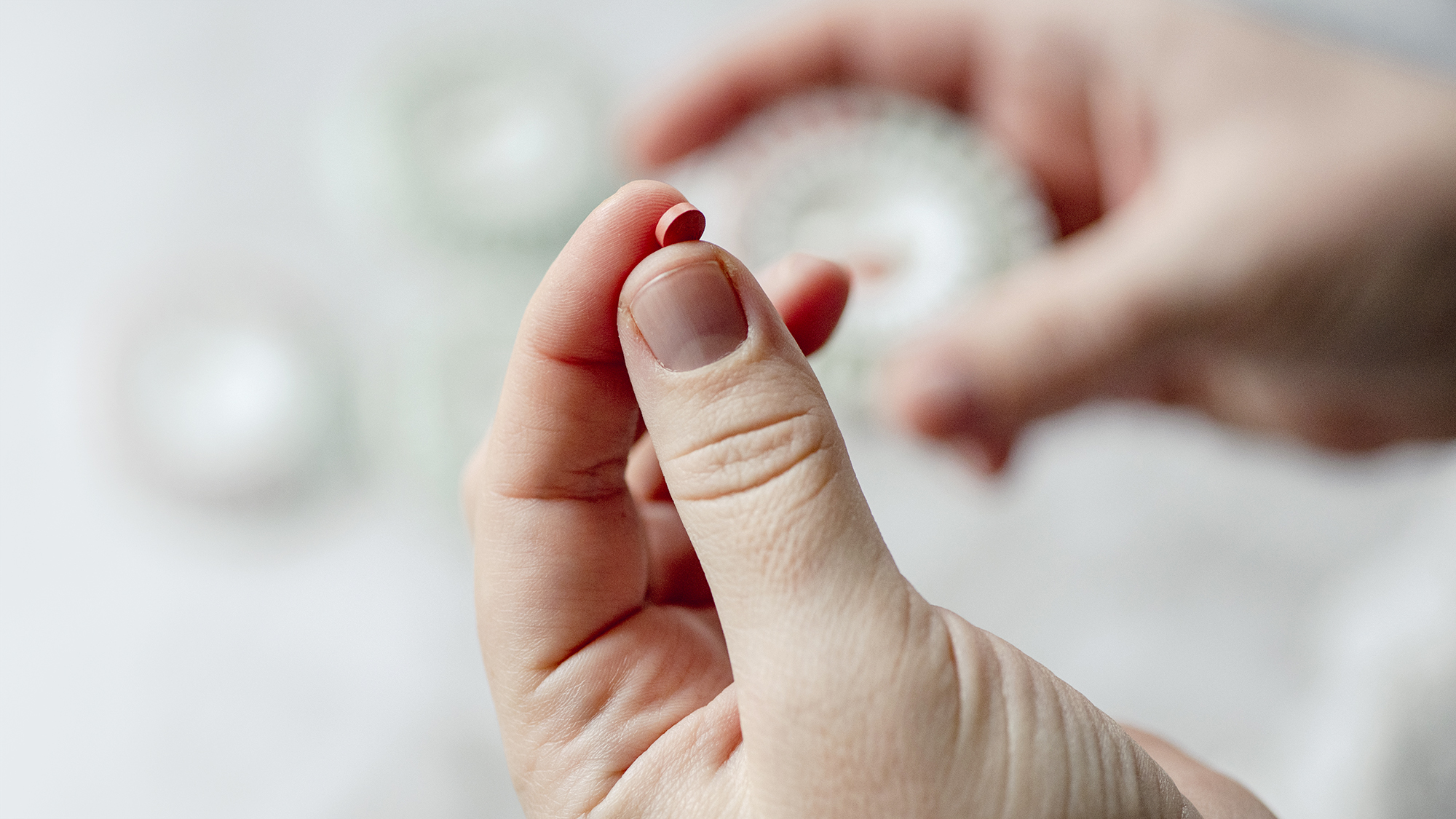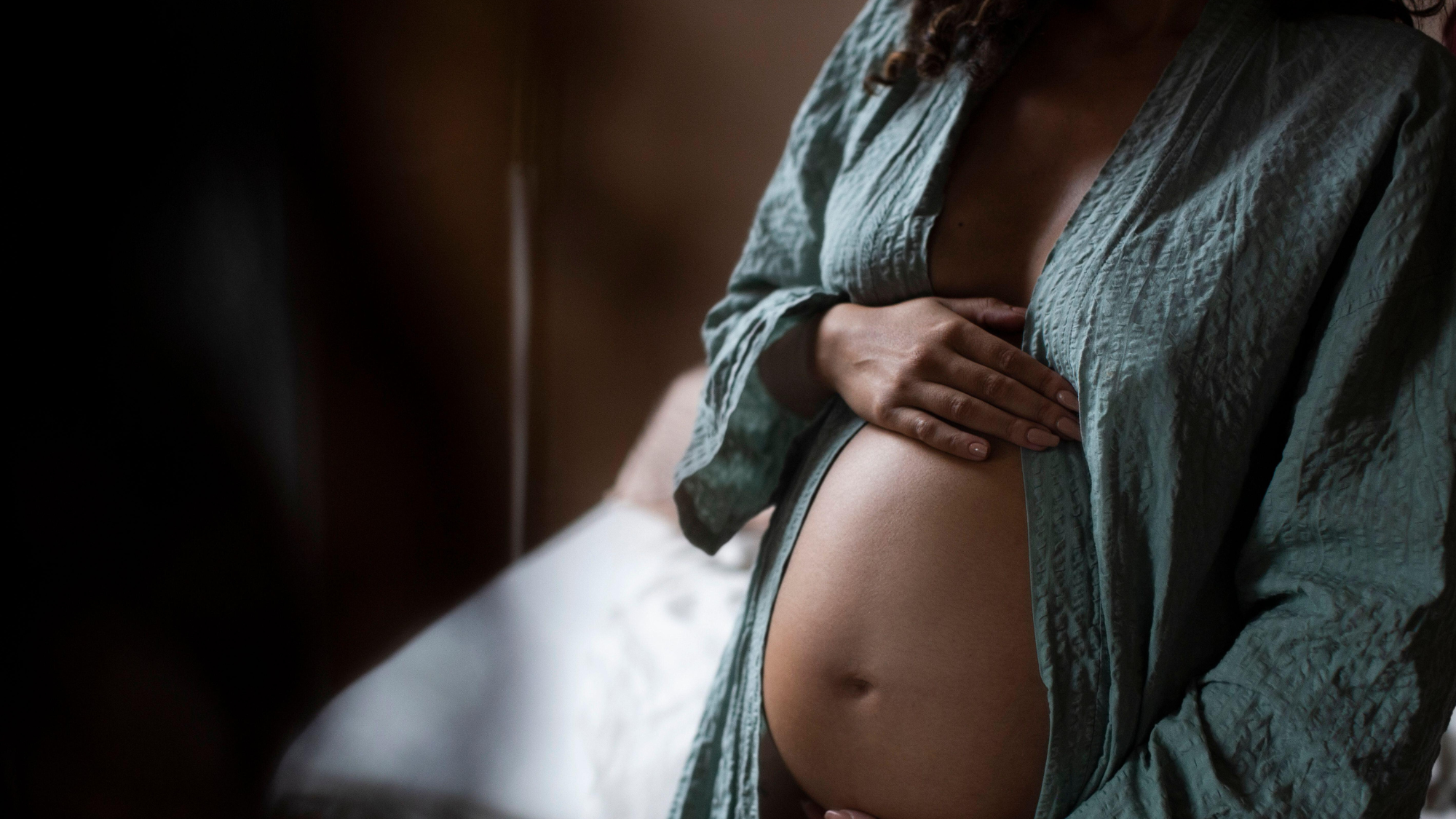Menopause in the workplace: should it be treated as a disability?
Equality watchdog sparks backlash for guidance that women suffering debilitating symptoms should be protected under Equality Act

A free daily email with the biggest news stories of the day – and the best features from TheWeek.com
You are now subscribed
Your newsletter sign-up was successful
The UK equality watchdog has issued controversial new guidance for employers that says menopause symptoms can be considered a disability.
Symptoms of the menopause, which can include hot flushes, exhaustion, depression and brain fog, can be considered a disability under the Equality Act 2010 if they have a "long-term and substantial impact" on someone's ability to carry out their usual day-to-day tasks, according to the Equality and Human Rights Commission (EHRC). Employers could face legal action if they do not make "reasonable adjustments", which might include cooler rooms, breaks and flexible uniform policies.
While some women have hailed the guidance as an inclusive step, others claim it risks pathologising a natural process and could backfire by stigmatising middle-aged women.
The Week
Escape your echo chamber. Get the facts behind the news, plus analysis from multiple perspectives.

Sign up for The Week's Free Newsletters
From our morning news briefing to a weekly Good News Newsletter, get the best of The Week delivered directly to your inbox.
From our morning news briefing to a weekly Good News Newsletter, get the best of The Week delivered directly to your inbox.
'Yet another reason to write off' menopausal women
"We campaigned really hard for what's a perfectly natural life stage not to be considered a disability," said Mariella Frostrup, who co-founded campaign group Menopause Mandate with Davina McCall and Penny Lancaster. This feels "like a step backwards".
Like many aspects of female health, from pregnancy to endometriosis, menopause is "stigmatised, under-researched and its symptoms undertreated", thanks to sexism and ageism, said The Observer. But this guidance risks legitimising those harmful stereotypes and misses the real problem.
About three-quarters of menopausal women experience some symptoms. The "majority of cases" can be treated "relatively easily and cheaply" through hormone replacement therapy (HRT), said the paper.
However, only 14% of menopausal women are taking HRT. Many GPs are "reluctant" to prescribe it, thanks to the "misreporting of scare stories about the risks". Women also struggle to access HRT because of "acute shortages". And too few doctors have sufficient menopause knowledge; four in 10 medical schools do not include it in their mandatory curriculum.
A free daily email with the biggest news stories of the day – and the best features from TheWeek.com
Women are being denied the treatment they need, which would make many of the suggested workplace accommodations "moot", Dr Louise Newsom, GP and a member of the government menopause taskforce, told The Telegraph.
Talking about the struggles of menopause is "always a good thing in breaking the taboo", she said, but ultimately, "this is a healthcare issue more than an employment issue".
Anna van Praagh at the London Evening Standard read the guidance with "horror". It makes the prospect of hiring someone my age "about as attractive as walking headfirst into a lorry", she said.
'Absolutely no shame in this'
Critics have "misread what the EHRC actually says", said Kathleen Stock in The Times. The Commission is not arguing that menopause counts as a disability, but rather that debilitating symptoms might count as such. And in the case of symptoms like perimenopausal "flooding" – extremely heavy periods, sometimes lasting weeks and causing great pain or anaemia – who could deny this?
Perhaps campaigners who "reject disability terminology" could accept that ageing means you're more susceptible to "disruptive medical problems", and there is "absolutely no shame in this".
Don't forget that one in 10 women say they have left a job because of the menopause, Eleanor Mills, founder of online platform Noom and former editor of The Sunday Times magazine, told The Telegraph.
About 25% of women "really suffer at this point in their lives". Ultimately, "we need to keep as many women in the workforce as possible".
Women are made to "jump through hoops of fire" to get the support they need, broadcaster Narinder Kaur told MailOnline. Menopause isn't a disability, but "it is debilitating". Although the new guidance will not remove the stigma, "it's high time it's recognised", because the symptoms can be "brutal".
Harriet Marsden is a senior staff writer and podcast panellist for The Week, covering world news and writing the weekly Global Digest newsletter. Before joining the site in 2023, she was a freelance journalist for seven years, working for The Guardian, The Times and The Independent among others, and regularly appearing on radio shows. In 2021, she was awarded the “journalist-at-large” fellowship by the Local Trust charity, and spent a year travelling independently to some of England’s most deprived areas to write about community activism. She has a master’s in international journalism from City University, and has also worked in Bolivia, Colombia and Spain.
-
 The ‘ravenous’ demand for Cornish minerals
The ‘ravenous’ demand for Cornish mineralsUnder the Radar Growing need for critical minerals to power tech has intensified ‘appetite’ for lithium, which could be a ‘huge boon’ for local economy
-
 Why are election experts taking Trump’s midterm threats seriously?
Why are election experts taking Trump’s midterm threats seriously?IN THE SPOTLIGHT As the president muses about polling place deployments and a centralized electoral system aimed at one-party control, lawmakers are taking this administration at its word
-
 ‘Restaurateurs have become millionaires’
‘Restaurateurs have become millionaires’Instant Opinion Opinion, comment and editorials of the day
-
 ‘Zero trimester’ influencers believe a healthy pregnancy is a choice
‘Zero trimester’ influencers believe a healthy pregnancy is a choiceThe Explainer Is prepping during the preconception period the answer for hopeful couples?
-
 Stopping GLP-1s raises complicated questions for pregnancy
Stopping GLP-1s raises complicated questions for pregnancyThe Explainer Stopping the medication could be risky during pregnancy, but there is more to the story to be uncovered
-
 The controversial Free Birth Society
The controversial Free Birth SocietyThe Explainer Influencers are encouraging pregnant women to give birth without midwife care – at potentially tragic cost
-
 More women are using more testosterone despite limited research
More women are using more testosterone despite limited researchThe explainer There is no FDA-approved testosterone product for women
-
 The ‘menopause gold rush’
The ‘menopause gold rush’Under the Radar Women vulnerable to misinformation and marketing of ‘unregulated’ products
-
 FDA OKs generic abortion pill, riling the right
FDA OKs generic abortion pill, riling the rightSpeed Read The drug in question is a generic version of mifepristone, used to carry out two-thirds of US abortions
-
 Forever chemicals were found in reusable menstrual products. That is nothing new for women.
Forever chemicals were found in reusable menstrual products. That is nothing new for women.Under the Radar Toxic chemicals are all too common in such products
-
 RFK Jr. scraps Covid shots for pregnant women, kids
RFK Jr. scraps Covid shots for pregnant women, kidsSpeed Read The Health Secretary announced a policy change without informing CDC officials